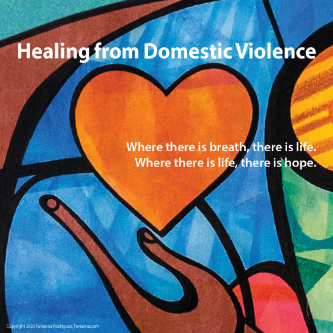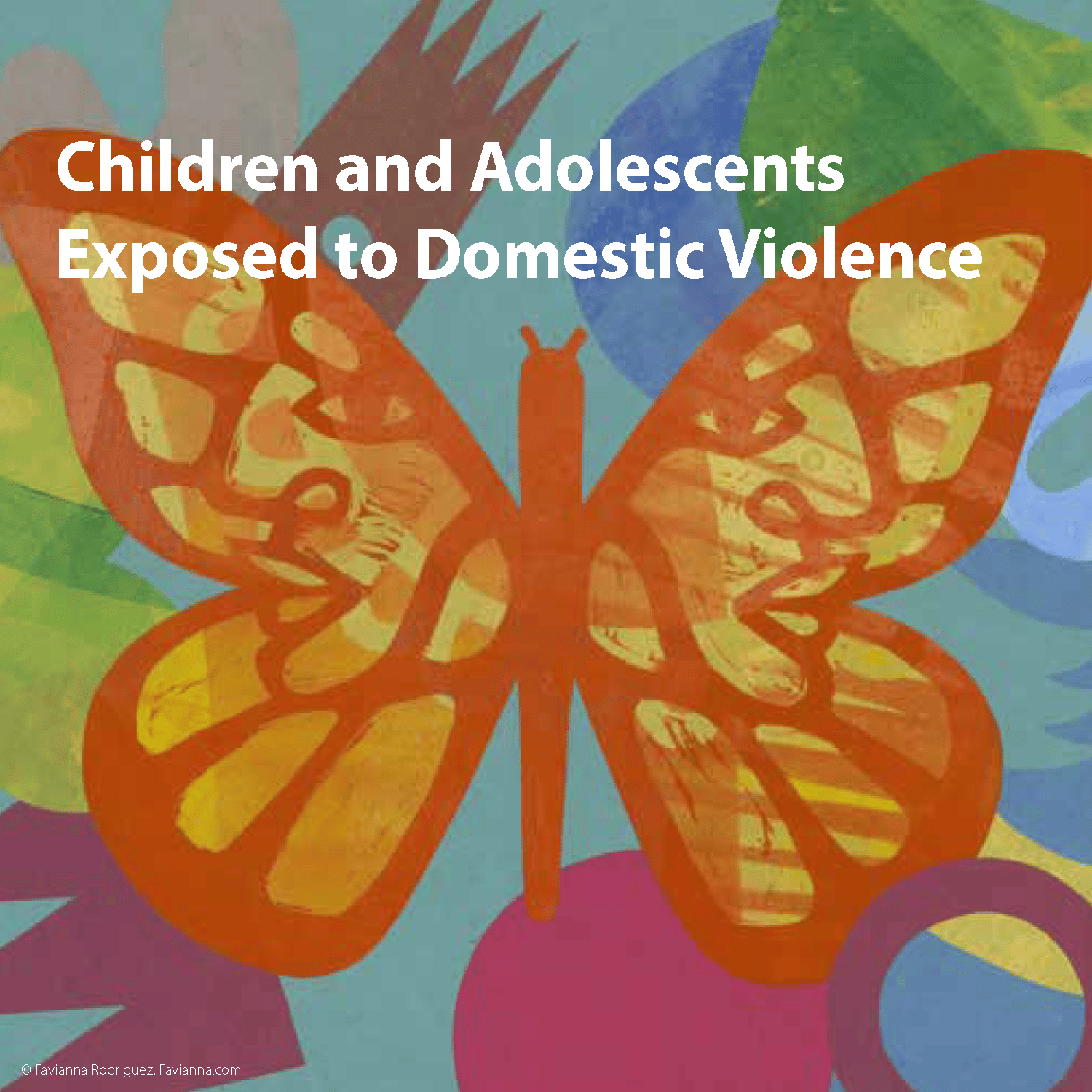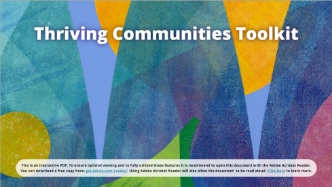Domestic Violence
Domestic violence is a pattern of abusive behavior in a relationship used by one partner to gain or maintain power and control over the other partner. Domestic violence can be actions or threats of actions that influence or control another person’s behavior and decisions and are meant to intimidate, humiliate, isolate, frighten, coerce, blame, or injure.
If you are experiencing domestic violence or someone you know is, click here to learn about Idaho community and tribal domestic program advocacy services throughout Idaho.
What Service Providers Need to Know
Safety Planning
For survivors of domestic violence, ongoing safety planning is especially important and a core part of advocacy services. People can make more informed and thoughtful decisions when they feel safe. Thinking about safety and what is needed for a person to feel increased safety is important for survivors of domestic violence.
Advocates have an essential role in offering information, analysis, and resources — to work in partnership with survivors to create a safety plan. A Safety Plan is a personal step-by-step comprehensive plan advocates created in collaboration with survivors to assist them in strategically leaving an abusive relationship, or in planning for their safety and the safety of their children while remaining in contact with the abusive partner/parent.
This Meeting Survivors in the Community Guide provides tips and tools for providing mobile advocacy to survivors of abuse, including how to prepare for meeting in someone’s in the community or their home and planning for the safety of program staff and survivors.
Confidentiality
To learn more about confidentiality for Idaho advocates, click here.
Idaho Risk Assessment of Dangerousness
The Idaho Risk Assessment of Dangerousness includes seven factors of an increased likelihood of risk in an abusive relationship. Those seven risk factors are:
- A history of domestic violence in the relationship
- Threats by the abusive partner to kill the victim or children
- Threats of suicide by the abusive partner
- Recent or imminent separation or court actions involving the relationship or children
- Coercive and controlling behavior by the abusive partner
- Prior police contact with the abusive partner
- Alcohol or drug abuse by the abusive partner
The Idaho Risk Assessment of Dangerousness also includes five indicators that suggest an increased risk of lethality in abusive relationships. Those lethality indicators are:
- Current stalking within the relationship
- The abusive partner has forced their partner to have sexual contact
- Current attempted strangulation
- Recent separation from the relationship
- Extreme possessiveness by the abusive partner
If you want to know more about the research foundation for the Idaho Risk Assessment, here is the Idaho Risk Assessment of Dangerousness (link needed)research paper.
Civil Protection Orders
Civil protection orders often come up during conversations about safety planning. While Protective Orders are very effective for many people, they are not a good option for everyone. Some abusers react to these court orders with escalated violence.
Advocates can support survivors in deciding if they want to move forward a civil protection order. There is no cost to file a petition for a protection order and there is no need for an attorney. The paperwork for a civil protection order is available at your local court clerk’s office or online through an interactive form process available on Idaho Guide & File website or PDF fillable PDF forms.
Learn more about Idaho Civil Protection Orders here or contact the Idaho Legal Aid Services Domestic Violence Advice Line at 1-877-500-2980.
If there is an ongoing criminal case, the judge will usually sign a criminal no contact order requiring that the person using the violence (the defendant in a case) to stay away from and not harass those of us experiencing the violence. Those with an order in place can ask the court to change or remove it. NCOs are only in place while a case is ongoing (so if the charges are dropped, the order will be dropped too).
If there is an ongoing criminal case, the judge will usually sign a criminal no contact order requiring that the person using the violence (the defendant in a case) to stay away from and not harass those of us experiencing the violence. Those with an order in place can ask the court to change or remove it. NCOs are only in place while a case is ongoing (so if the charges are dropped, the order will be dropped too).
Children Exposed to
Domestic Violence
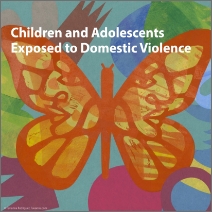
When there is domestic violence in the home, children and teens see and hear more than we realize. Exposure to domestic violence can impact the health, development, and wellbeing of children and teens. Advocates can support a parent or caregiver, to reduce the effects of exposure to domestic violence by nurturing care and love. Advocates can assure survivors that relationship as a parent or caregiver to their child is the single most important factor in determining their safety and healing.
Shelter and Transitional Housing
Community and tribal domestic violence programs often provide temporary emergency shelter or transitional housing for survivors.
The Washington State Coalition Against Domestic Violence provides guidance on best practices for shelters as well as running a shelter with minimal rules.
Domestic violence is a leading cause of homelessness for women and children. The Washington State Coalition Domestic Violence Housing First approach focuses on getting survivors of domestic violence into stable housing as quickly as possible, and then providing the necessary support as they rebuild their lives.
The Idaho Coalition has limited transitional housing funds available for survivors that can be requested by community and tribal domestic and sexual violence programs. Click here to see if your client is eligible for transitional housing funds.
Idaho Coordinated Response to Domestic & Sexual Violence
The Idaho Coordinated Response to Domestic & Sexual Violence is a state-level group from criminal justice systems and community organizations connected to historicallymarginalized communities, who worked to improve the criminal justice response to domestic and sexual violence by centering solutions on historically marginalized communities and explore innovative solutions with, and beyond, the criminal legal system. The group created Thriving Communities: A Guide to Centering Community Voices in Solutions to Violence to guide local coordinated community response teams.
Service Provider Resources
Idaho Coalition Domestic Violence Webinars
Social Change Campaigns
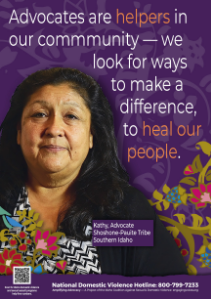
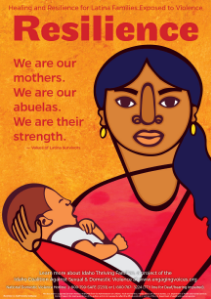
Idaho Coalition Publications
Download or Order
Domestic Violence Handbook – Spanish (Sanando de la Violencia Doméstica)
Domestic Violence Handbook – Arabic
Domestic Violence Handbook – Swahili
Children Exposed to Domestic Violence Handbook – English
Children Exposed to Domestic Violence Handbook – Spanish
Domestic Violence Handbook for Latinx Survivors
Manual Para las Sobrevivientes Latinas
2023 Idaho Domestic Violence Fact Sheet
2023 Intimate Partner Violence Fatalities
Idaho Risk Assessment of Dangerousness Form
Idaho Risk Assessment of Dangerousness Card
Idaho Risk Assessment of Dangerousness Research Paper
VAWA Self Petition brochure – Spanish
Healing From Sexual Assault – English
Get Help
Connect with a domestic violence program near you, learn your options, or to help a friend, family member, neighbor or co-worker.
National Domestic Violence Hotline:
1-800-799-SAFE (7233) or 1-800-787- 3224 (TTY line for Deaf/hearing impaired). Free, confidential assistance 24/7 to victims of domestic violence. Multilingual and may connect you with a local program that can provide assistance.
National Latin@ Network, Casa de Esperanza Bilingual Helpline:
1-651-772-1611 or www.casadeesperanza.org; www.nationallatinonetwork.org A 24-hour Spanish bilingual domestic violence helpline as well as an online resource directory to find organizations that are equipped to assist individuals. Information on the website is also available in Spanish.
Strong Hearts Native Helpline:
1-844-7NATIVE (1-844-762-8483) open 7 a.m.to 10 p.m. CST, 7 days a week.
Anti-Violence Project:
212-714-1141 – Free, bilingual (English/Spanish), 24-hour, 365-day-a-year crisis intervention and support to LGBTQ and HIV-affected survivors of any type of violence.
Trevor Lifeline (for LGBTQ* youth):
1-866-488-7386 – Crisis intervention and suicide prevention for LGBTQ youth.
